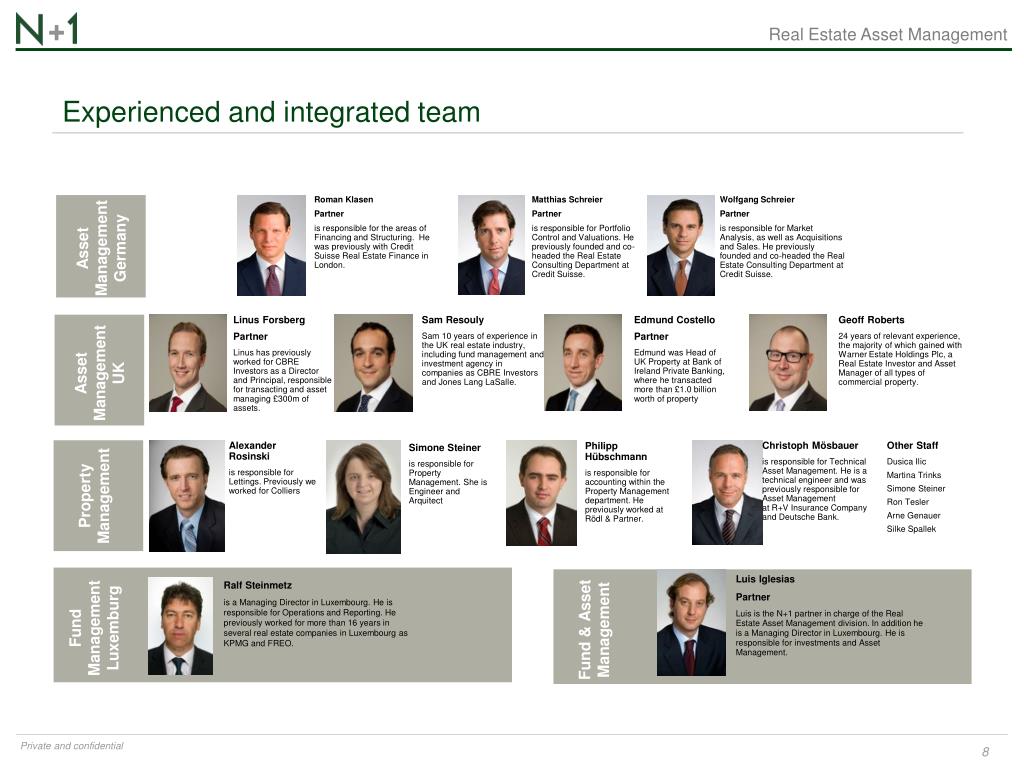

The goal of a real estate asset manager is to optimize the client’s portfolio, taking into account his goals, risk tolerance and other factors. The management of assets, such as real estate, serves to maximize value in the interests of the owner. By creating a single source of truth, the asset manager can communicate with the other stakeholders in a simplified way and avoid media disruptions. This, not only requires a wide range of knowledge, but also a certain willingness to negotiate and assertiveness.

Therefore, a real estate manager must always keep an overview of the current market, think long-term and recognize changes and trends at an early stage in order to act accordingly.ĭue to the various tasks, it is necessary for a real estate asset manager to work with a wide variety of functionaries, such as architects, accountants or brokers. Regular reporting on the current condition of the properties is also part of this. The regular exchange with the owner is also a main task of the real estate manager. Once the measures have been determined, they are partly passed on to a property and facility manager. This includes weighing the costs and risks associated with the specific measures. Planning and taking value-enhancing measures in order to generate an optimal profit is also a very important area. Investment and portfolio management is on top.Ĭoncrete tasks are the acquisition and processing of information on the properties. The tasks of a real estate asset manager are assigned to the strategic property level. He is the first point of contact for investors. Accordingly, he takes care of the organization, control and all other aspects of a property. The real estate manager looks after the real estate investments of various investors. The property can be accompanied throughout the entire process with the help of 3D surveys, a BIM model or digital twin. It is therefore to be understood as a kind of process that should ultimately deliver a result – to increase the value of the property with regard to the client’s goal. Asset management for real estate is active throughout the entire value creation phase. This includes, for example, the constant adjustment and ongoing implementation of the property strategy, the representation of the owner’s interests and assumption of the tasks, the optimization and reduction of current costs and the control of property and facility management. This is followed by management and optimization. In concrete terms, this means the analysis and valuation of the real estate or an entire portfolio. The main task of asset management: Managing real estate. This includes the control and management of the property and facility manager. Here, the property strategies are translated into concrete measures to achieve the goals. The last level of real estate management is the property level. It is the interface of the conception and utilization phase, with the goal of successfully implementing the defined specifications. Accordingly, strategies for existing or potential properties are developed at this level and are used during the management phase. Real estate asset management acts in accordance with the specifications of portfolio management and is classified at the strategic property level. In order to realize this, the following real estate asset management is required.

Accordingly, the implementation of the investment management is organized and controlled.

The aim of the portfolio strategy is to build up or maintain success by systematically structuring the portfolio. The next level, portfolio management, also known as real estate portfolio management, arises from the specifications of investment management. Typical tasks in this area are the procurement of information for investment decisions, as well as the creation of a strategy in coordination with the investor. These provide a framework, set guidelines for the investment policy of the real estate. Real estate management consists of several management levels that describe the activities that are carried out for a property.Īt the first level, the investment / corporate level (real estate investment management), overarching goals, values and standards are defined.


 0 kommentar(er)
0 kommentar(er)
